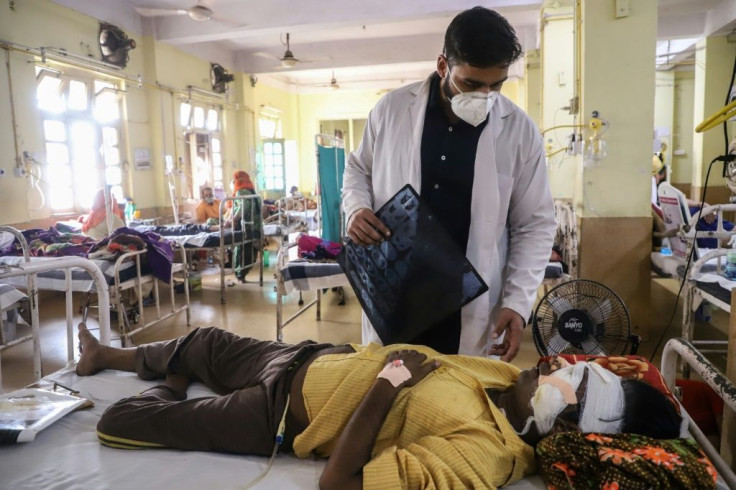India's New Epidemic: ‘Black Fungus’ Patients Lose Eyes, Nose, Jaw To Infection
KEY POINTS
- The black fungus epidemic has killed more than 4,000 people in India: Officials
- Doctors believe this infection could be related to the steroid treatments used on COVID-19 patients
- Health experts believe the figures could be undercounted
As India continues its fight against the coronavirus pandemic, a new outbreak of the deadly “black fungus” is causing COVID-19 patients to lose their eyes, nose and jaw.
Indian health officials have reported 45,374 cases of this rare infection, called mucormycosis, and more than 4,200 deaths over the last two months.
The black fungus is a highly aggressive disease that affects a person’s sinuses, brain and lungs. An anti-fungal injection could fight against the disease. In worse cases, doctors remove the eyes, nose and jaw from patients to prevent the virus from spreading to the brain.
Doctors believe the epidemic, which has a mortality rate of 50%, may be linked to the steroids used to treat COVID-19. These steroids reduce inflammation in the lungs caused by the virus but reduce the body’s immunity levels and cause a rise in blood sugar levels.
"Diabetes lowers the body's immune defenses, coronavirus exacerbates it, and then steroids which help fight Covid-19 act like fuel to the fire," Dr. Akshay Nair, a Mumbai-based eye surgeon, told BBC.
The steroid treatment used to fight against COVID-19 could also increase the patient’s risk of developing blood clots and malnourished tissue, which could become a target for the black fungus.
The fungus develops in the bodies of people who have inhaled fungal spores from the air. Typically, mucormycosis affects people who have health problems or who have suffered from skin trauma, according to the Centers for Disease Control and Prevention.
Before the COVID-19 pandemic struck, India only recorded a yearly average of 20 cases of black fungus among people with severely compromised immunity, according to ABS-CBN News.
Health officials are now battling the outbreak of mucormycosis throughout the country, with Maharashtra and Gujarat recording more than 1,700 deaths, making them the two worst-affected states.
However, health experts believe the figures of both black fungus cases and deaths could be undercounted, noting that only a small fraction of all cases reach medical institutions in big cities.
Experts added that many patients die before they are given medical care in a hospital. Many recovered patients have also suffered relapses.
"We are seeing patients who were treated aggressively for the disease and discharged from hospitals returning with a recurrent infection which is manifesting in a wider spread of the disease in the eye or brain," Dr. Nair said.

© Copyright IBTimes 2024. All rights reserved.






















